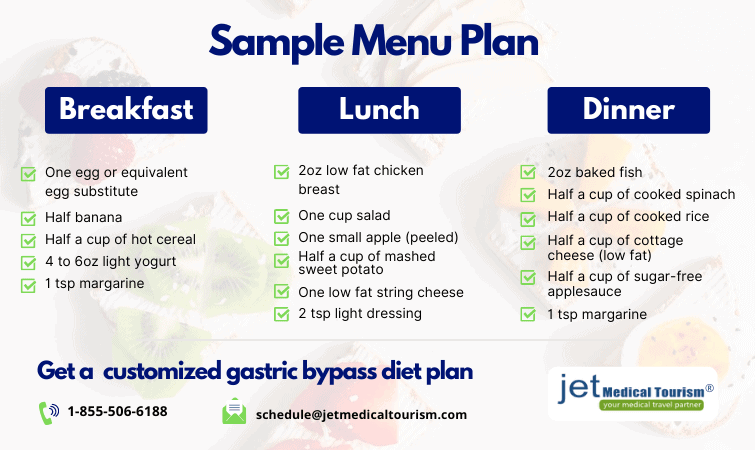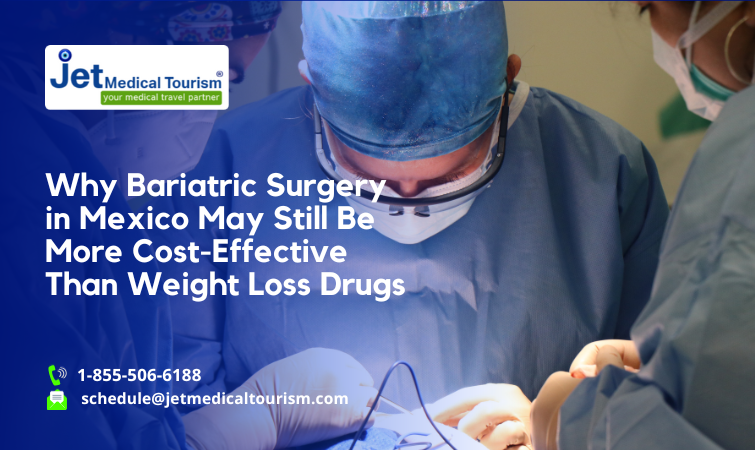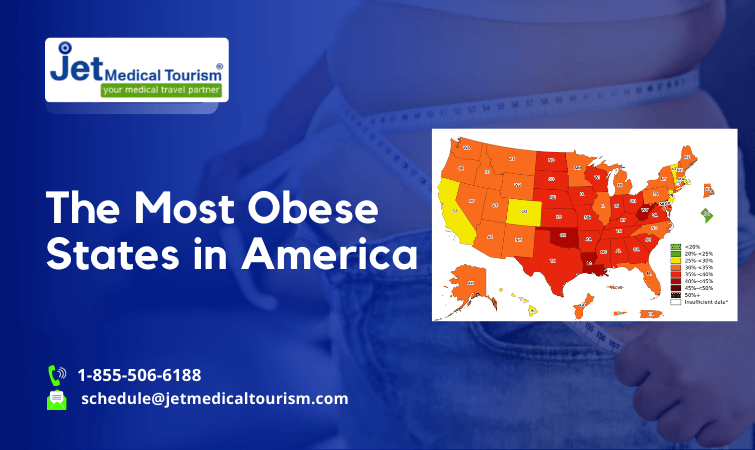Gastric Bypass Diet

Gastric bypass diet is designed to help you recover safely from your bariatric surgery and achieve sustainable weight loss results. Your bariatric surgeon and their registered nutritionist will explain to you all about your gastric bypass surgery diet. You should be prepared to follow their instructions about what types of food you can or cannot eat, and what should be your portion size for each meal.
Gastric bypass diet before surgery and diet after gastric bypass surgery will be different. Your surgeon’s team will provide you a clear diet plan for each phase. The primary purpose of your gastric bypass diet is to let your stomach heal comfortably without getting over-stretched by food. In addition, your gastric bypass surgery diet will create the foundation for your new, healthy eating habits.
Gastric bypass diet is vital to your weight loss success. Call us at Jet Medical Tourism® today to learn about the lifelong benefits of gastric bypass surgery.
Gastric bypass pre-op diet
The purpose of your pre gastric bypass diet is to reduce the fatty deposits around your liver. This will enable you to become fitter before your surgery and improve your safety profile. Secondly, your bariatric surgeon will be to view and navigate your anatomy while performing the surgical procedure. Make sure to follow your gastric bypass pre-op diet plan diligently. Do not get tempted by the idea to binge eat one last time before your surgery.
The typical gastric bypass diet before surgery will include a higher content of lean proteins, and will be low on carbohydrates and fats. Your nutritionist will provide you a diet plan that ensures intake of 75 to 125 grams of protein per day. You will consume about 750 to 1,200 calories per day, depending on your BMI and other individual factors.
The following directions could be a part of your gastric bypass pre op diet for a few weeks prior to your surgery:
- Do not smoke or consume any alcoholic drinks
- Avoid beverages that contain sugar
- Avoid carbonated or caffeinated beverages
- Do not indulge in binge eating
- Eat your meals slowly and sip your liquids
- Avoid drinking with meals
- After a meal, wait for 30 minutes before drinking a liquid
- With your surgeon’s approval, you may eat one or two servings per day of vegetables or lean meat
- As part of your pre op liquid diet menu, you may consume vegetable juice, but avoid fruit juice
- You may consume very thin cream of rice or wheat
- You may consume soup broth but without any solids
Gastric bypass liquid diet
Your 2 or 3 day liquid diet before gastric bypass is the most important part of your pre surgery preparation. This diet will be low in fat and sugars, but will still fulfill your daily nutritional requirement of about 100 grams of protein and about 1000 calories. The actual diet composition will be customized according to your unique needs.
Protein shakes are a key element in your clear liquid diet before gastric bypass surgery. You should choose shakes that contain at least 15 grams of protein per serving and not more than 5 grams of sugar. A range of other liquids may also form a part of your gastric bypass liquid diet, including hot cereals and clear soups.
A Sample Pre Gastric Bypass Liquid Diet Menu

Breakfast
• 20g Protein shake
• 5oz Greek yogurt (plain)
• 15 oz Water
Lunch
• 20g protein shake
• Sugar-free gelatin
• 5oz Low-salt cream soup
• 10oz flavored water (sugar-free)
Dinner
• 20g protein shake
• 6oz skimmed milk
• 5oz Low-salt broth based soup
Note: Drink about 25oz of additional water or flavored drinks (sugar free) during the day.
Gastric bypass post-op diet stages
Your diet after gastric bypass is designed to gradually enable your stomach to digest food and return to its normal function. The post gastric bypass diet time frame can be divided into four key stages. Stage 1 diet after surgery will include clear liquids only.
Phase 2 diet will include pureed diet. Diet after gastric bypass surgery in the second and third months will include soft and adaptive foods. Post diet for gastric bypass at four months will stabilize your stomach and will include solids.
WEEK 1 and 2 – Clear Liquid Diet
Among all the post-operative gastric bypass diet stages, the first stage is most important as it includes only clear liquids to keep you well hydrated. Three key guidelines for this phase of your post op diet will include: (a) Sip 48 to 64oz of liquids per day to stay hydrated; (b) Drink fruit and vegetable juices in diluted form to avoid diarrhea or nausea; and (c) Avoid drinking extremely cold or hot liquids.
RELATED: 5-Day pouch reset
Suggested Choices
Fruit Juice (diluted)
• Grape
• Cranberry
• Apple
Broths
• Chicken
• Vegetables
• Clear beef
Additional Beverages
• Water
• Decaffeinated tea or coffee
• Ice chips
• Sports drinks (low calorie)
• Non-carbonated flavored water
• Sugar-free frozen juice bars or popsicles
• Sugar-free gelatin
WEEK 3 and 4 – Pureed Foods
Your diet after gastric bypass surgery at this stage will include pureed foods, which are essentially liquids with a thicker consistency. High protein foods will be included in this diet so that as a woman you may get about 65 grams of protein, or as a man you may get about 75 grams of protein. Continue to drink sufficient fluids every day to keep well-hydrated.
Suggested Choices
Protein Intake
• Yogurts (without fruit chunks) – nonfat and sugar-free
• Skim milk with protein powder
• Cream soups (strained) – chicken, mushroom, potato, or celery
• Low fat or nonfat cottage cheese (mashed)
• Low fat or nonfat ricotta cheese
• Pureed chicken, beef, or turkey
• Scrambled eggs
• White fish mashed with a fork – haddock, cod, tilapia
• Canned tuna fish or chicken breast (mashed)
• Baby food meats
• Protein supplements
Starch or Grain Intake
• Cream of rice or cream of wheat
• Baby oatmeal
• Pureed winter squash
• Grits
• Farina
• Mashed potatoes
Fruit Intake
• 100% fruit juices (diluted) – grape, apple, cranberry
• Applesauce
• Pureed apricots, peaches, pineapples, peaches, melons
• Mashed canned fruits
• Mashed bananas
Vegetable Intake
• Mixed vegetable juice
• Tomato juice
• Pureed carrots, spinach, green beans, summer squash
• Do not consume fibrous veggies (such as cauliflower or broccoli at this stage)
MONTH 2 and 3 – Soft or Adaptive Diet
Gastric bypass post op diet at this stage is aimed at helping to transition to semi-solid and adaptive foods. Your gastric bypass diet at this stage may include cooked veggies, cereals, chicken, fish, soft meat, and fruit. You should eat slowly, chew your food thoroughly, and eat in small portions three times a day. Continue using protein supplements as directed by your dietitian, and stay well-hydrated throughout the day.
Suggested Choices
Protein Intake
• Multiple varieties of fish
• Chicken breast or turkey breast (chopped)
• Low fat lunchmeats
• Poached or hard boiled eggs
• Grated or sliced low fat cheese (with up to 5g of fat)
• Soups with minced meat or diluted with skim milk
Starch or Grain Intake
• Cereals moistened in skim milk (unsweetened)
• Hot cereal meals
• White rice, noodles, or boiled pasta
• Yams, sweet potatoes, baked potatoes
Vegetable and Fruit Intake
• Skinless fresh fruit – peaches, pears, apples
• Fresh and ripe bananas
• Canned fruit chunks
• Canned or cooked vegetables
• Avoid eating fibrous veggies, such as brussels sprouts and broccoli, and do not eat seeds and skins
MONTH 4 and beyond: Solid, Normalization Diet
This is the final leg of your gastric bypass diet stages. With your bariatric surgeon’s approval, from the fourth month you will be able to eat solid foods with a normal consistency. However, a normalized diet does not mean the freedom to return to your old eating patterns.
Your vital goal at this stage will be to eat well-balanced, nutrient-dense meals, avoid high fats and sugars, and maintain your nutritional supplementation as directed by your weight loss surgeon.

RELATED POST: Gastric bypass post op diet
Long term diet after gastric bypass surgery
You can enjoy a long life full of health and happiness after your gastric bypass surgery provided you remain committed to a balanced diet. Gastric bypass diet 10 years later and even beyond should continue to focus on nutrition and health rather than eating more.
Your long term diet after gastric bypass surgery can keep your lifetime weight loss goals on track. Here some of the dietary guidelines you should continue to follow in the long run.
- Chew your food thoroughly – This will help you avoid the risk of dumping syndrome in the long run.
- Eat in small portions – Stop eating whenever you feel full. Small, multiple meals will keep you satiated without over-eating.
- Drink plenty of fluids – Drink at least 2 liters (8 cups) of fluids every day. This will ensure that you do not feel fatigued or dehydrated.
- Include lean proteins in your diet – Eat your proteins before you consume any other type of food in your meals to stay energized.
- Avoid sugary and fatty foods – These foods pass without proper digestion through your GI tract and can lead to health problems in the long run.
- Don’t forget your nutrition supplements – Your long term diet after surgery will include mineral and vitamin supplements, which are vital for the rest of your life.
Cheating on liquid diet before gastric bypass
While the temptation to cheat on your pre-op gastric bypass diet can be strong, it may increase your risk of surgical complications. Your pre-op liquid diet has been designed with a specific purpose to naturally reduce the superficial fats from your liver. Cheating on liquid diet before surgery is not recommended.
If you have indulged in this practice, do not hide it from your bariatric surgeon. They will be able to take corrective measures to protect your health, and may defer your procedure by a few days. It is important to be physically and emotionally well-prepared for your gastric bypass surgery in order to achieve safe and desirable results.
RELATED: Weight gain after gastric bypass
Keto diet after gastric bypass
Ketogenic diet, popularly known as keto diet is an unconventional diet plan comprising very low carbohydrates, moderate protein intake, and very high fat intake. According to some nutrition experts, keto diet after gastric bypass may be a good way to maintain your long-term weight loss and retain the new metabolic state achieved after the surgery.
However, do not attempt this diet plan without approval from your surgeon or registered nutritionist. In any case, keto diet after Roux-en-Y must not be started until at least one month has passed after your surgery. The reason is that the ketogenic diet will focus more on high fats and sugars, which could increase your risk of dumping syndrome.
YOU MIGHT ALSO WANT TO READ: Dumping syndrome after gastric sleeve
Some of the known benefits of gastric bypass and keto diet include weight loss maximization, reduced hypertension and blood lipid levels, improved energy levels, and control over symptoms of diabetes. However, you should remember that ketogenic diet is not for everyone. Do not pursue this option without prior approval from your bariatric surgeon.
Need help with gastric bypass diet plan? Contact Jet Medical Tourism® today.
Your gastric bypass diet will be a critical element in your long-term weight loss success after your surgery. At Jet Medical Tourism®, we understand the importance of a scientifically designed diet following your gastric bypass. We will guide and support you at every step before and after your surgery with regard to your dietary and other requirements.
Patients trust us because they know we will stay the course with them throughout their weight loss journey. To learn more about a customized gastric bypass surgery diet plan that is unique to your needs, contact Jet Medical Tourism® today.






